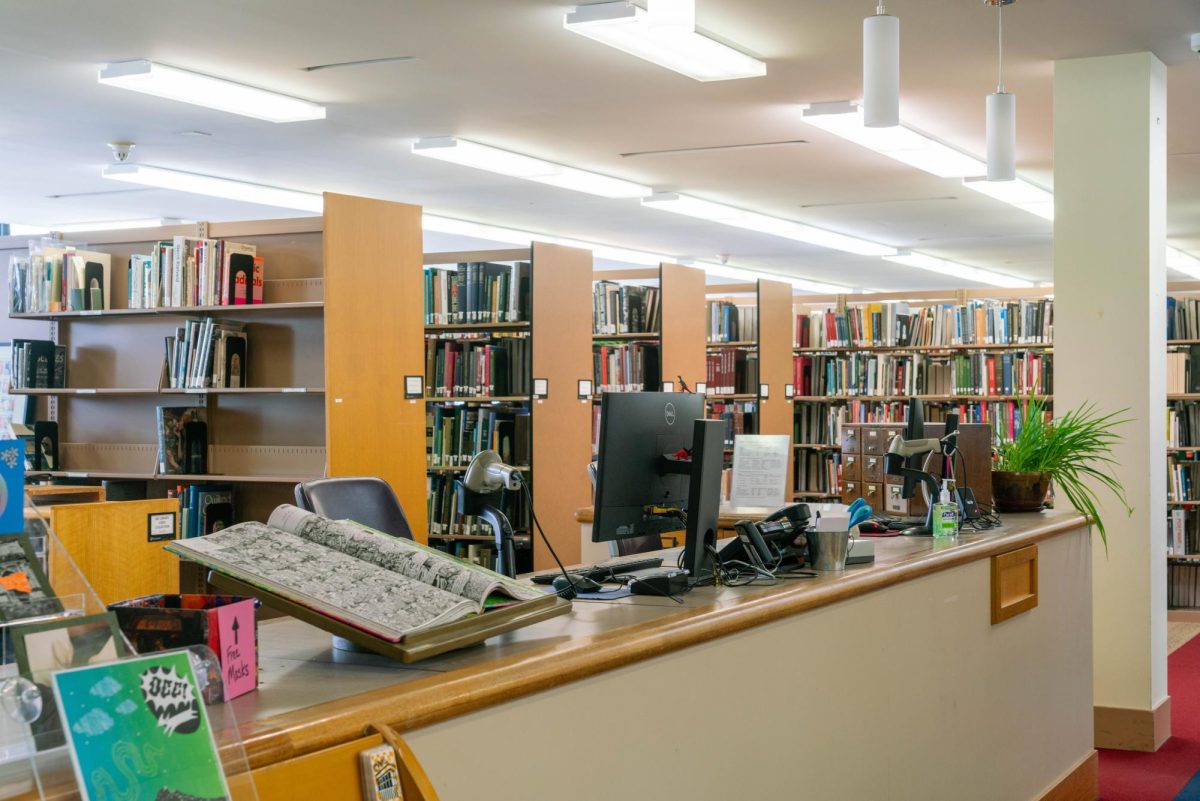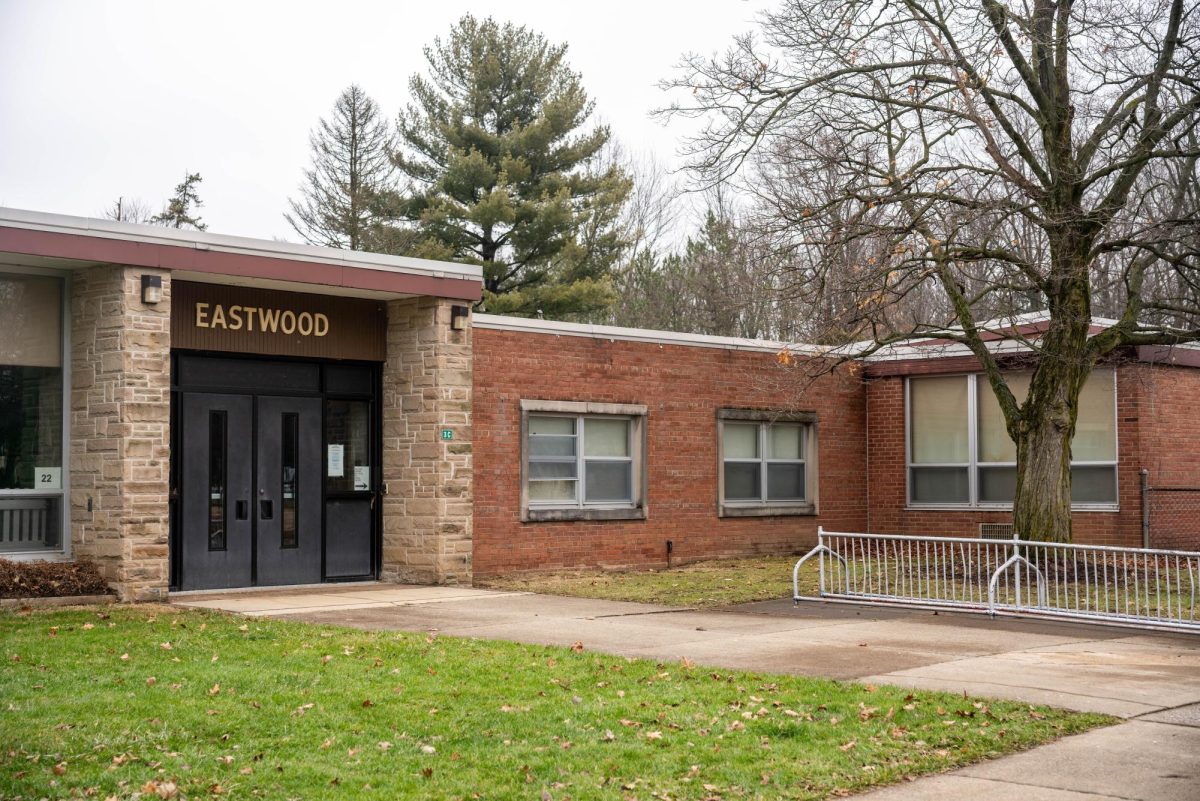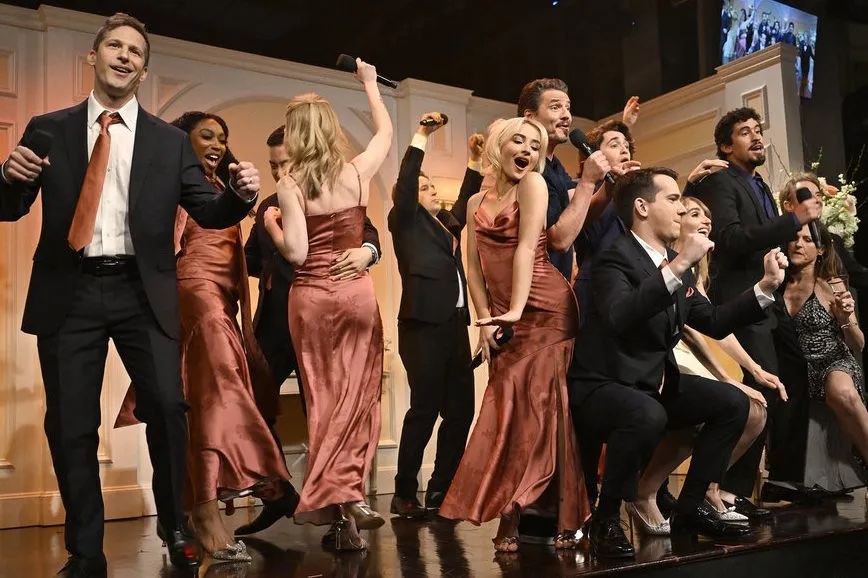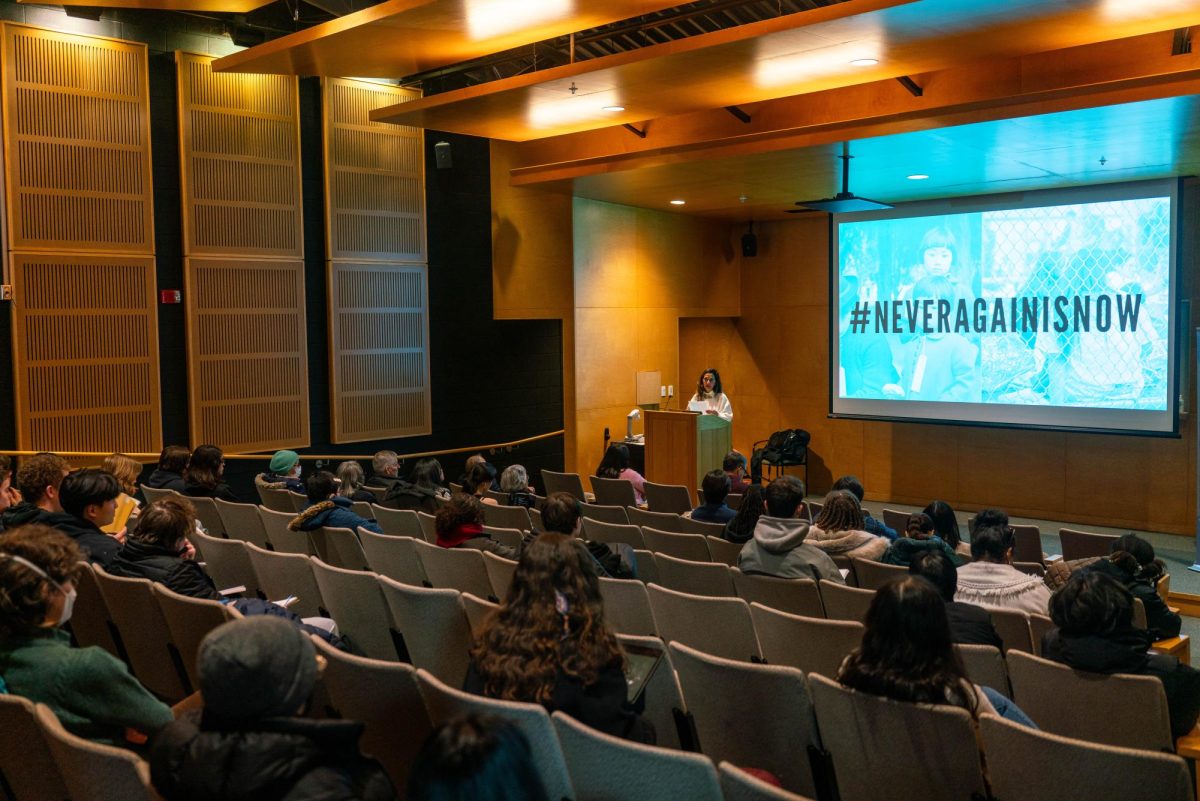A Bit Too Much Schmutz on Jerusalem of Gold
March 4, 2011
A lot of people might shudder at the thought of publicizing the exploits of their time studying abroad, let alone publicizing them musically — not merely out of embarrassment, but out of humility. Few will ever write about the spiritual journey they underwent on pub crawls, or the identity crisis they endured every time they submitted to the ruthlessness of foreign plumbing. A short story, maybe. A limerick, certainly. But… a musical?
A musical is bold. A musical is big. A musical is vulnerable. So kvetching about a musical should be easy.
When turning any event into a musical, one is already taking a huge risk: A musical is a heightened and hyperactive representation of reality that more often than not sacrifices sincerity for schmaltz, and Jerusalem of Gold is no exception. To generalize: The musical form is blatant rather than subtle, its important themes relegated to dialogue as filler between songs and rudimentary pop lyrics (in the case of Jerusalem of Gold, in which one of the play’s central ideas — staying “true” — is egregiously rhymed with “Ethiopian Jew”). Because the musical form is in so many ways reductive, and because it so often showcases archetypes, it therefore seems something of a self-mythologizing act to turn one’s spiritual experience into a piece of musical theater — especially when that experience, in its lightly-fictionalized rendition, includes a main character whose name is two letters away from the writer’s actual name.
The journey of playwright Kendell Pinkney, OC ’10 (and the journey of his fictionalized counterpart, Kendal), was notably different than that of the stereotypical American abroad. Desperate to flee from his evangelical roots as the son of a preacher man (“yes he was, ooh, yes he was”), Jerusalem’s Kendal (College junior Hayden Gilbert) journeys to Jerusalem to confront his identity as an outsider/newcomer to Judaism. Rather than comfortably sticking to the privilege of the American microcosm, in Jerusalem Kendal immerses himself in the marginalized subculture of Ethiopian Jews after meeting the enigmatic Saba (College senior Mieko Gavia) at a nightclub. The rest of the show consists of a series of scenes detailing his relationship with Saba and her friends, their relationship to Judaism and Israel, and their relationships with one another.
While one of the lovely aspects of Jerusalem is that it provides a glimpse into a cultural conflict of which many Oberlin students are likely ignorant, Jerusalem of Gold is a constant, textbook-ishly focused discourse on the condition of the Ethiopian Jew in Israel. And just as a Remedial Biology textbook might use crab lice cartoons to personify the woes of STDs, the play’s dialogue adheres so unwaveringly to the play’s message that the characters often seem like educational caricatures in a human shell. It’s a shame that in giving these marginalized characters a voice, the play couldn’t also get an audience to sympathize with their plight.
The most interesting plotline (thanks to excellent College seniors Heather Harvey and Augustin “Gus” Beall) involves the never-more-than-burgeoning romance between Tikvah (Harvey), an Ethiopian Jew, and David (Beall), a young man of Russian heritage accused of befriending the group out of anthropological curiosity. David and Tikvah are the most developed characters in the play, and the role of David signifies the vicious cycle of “othering” that likewise confines the group of Ethiopian Jews to their marginalized status. Through the character of David, Pinkney suggests that the search for community often neglects those who are unable to conform: He may be a member of Jerusalem’s overall majority, but within this minority group, he’s his own, isolated minority, and this makes his character quite compelling.
The publicity and hype around the show far outdid the production itself. The recently student-founded production company Thread Collective did an impeccable job piquing public curiosity with beautiful posters, a cryptic slogan and a Facebook page for “Jerry Gold” (a brilliantly nebbishy abbreviation of the show’s title). While advertised as a “workshop,” the production value ofJerusalem of Gold itself was lacking: Half of the dialogue was entirely inaudible, blocked by those grand, Dionysian columns that give our student union basement so much of its grandeur. Additionally, often the songs had an unintentional timbre due to some very testy mics fracturing the vocals. However, the actors plowed through these technical mishaps with commendable professionalism.
The usage of space was also somewhat baffling. Setting a play with multiple nightclub scenes in an actual nightclub could have made for an inspired bit of site-specific theater. Unfortunately, the nightclub scenes either took place on the ’Sco’s crab louse-sized stage or somewhere behind the audience, negating the whole purpose of setting the play in a space that so literally embodies its setting. The bottles of Great Lakes jiggling in the fridge behind me didn’t particularly help the atmosphere, either — though, admittedly, the fact that I’d drunk one of them may have.
The acting vacillated between buyable naturalism (which was impressive, given the expository dialogue and hasty avowal of intense affections) and foreign accent-induced discomfort. Standout performances came from the aforementioned Beall, Harvey and ebullient College junior Ralph Johnson. Beall’s vocal styling was a veritable mitzvah, and I walked out feeling that my two and a half hours had been validated by his voice alone (and by the handful of ’Sco pretzels I ate during intermission).
In many ways, the themes of semi-autobiographer Pinkney’s long-winded eulogy for his time abroad are certainly musical-worthy. There’s strife, sex (well, presumably), laughter, catchy tunes, burly naysayers, tragic-tractor-accidents-that-may-be-tractor-terrorist-attacks-that-may-due-to-unspecific-blocking-seem-like-bus-suicide-bombings-but-no-apparently-that-was-never-the-intent. But I wondered whether these themes wouldn’t seem quite as didactic if treated with the subtlety of drama — if the conflict was a seething undercurrent pervading the characters’ existences rather than something so blatant and constant that it actually became the characters.
Indeed, the strongest moments in the play occurred when the characters were simply allowed to exist, when their relationships were allowed to develop for the purpose of the relationships rather than for the purpose of a political agenda. A scene of brief levity in which three of Jerusalem’s leading ladies gossip was among the most natural moments of the play, and Beall’s gorgeously serene Shabbat prayer scene presented religion as an equalizer rather than a matter of conflict. There, the play managed to avoid triteness: Jerusalem, so often portrayed in the news as a place of segregation and brutality, is here only placated through prayer. However, the play’s overall moralizing coupled with the accessible music coupled with the lack of set made the whole operation seem like a political awareness assembly for high-schoolers. Which might actually be a successful route for this production.


















